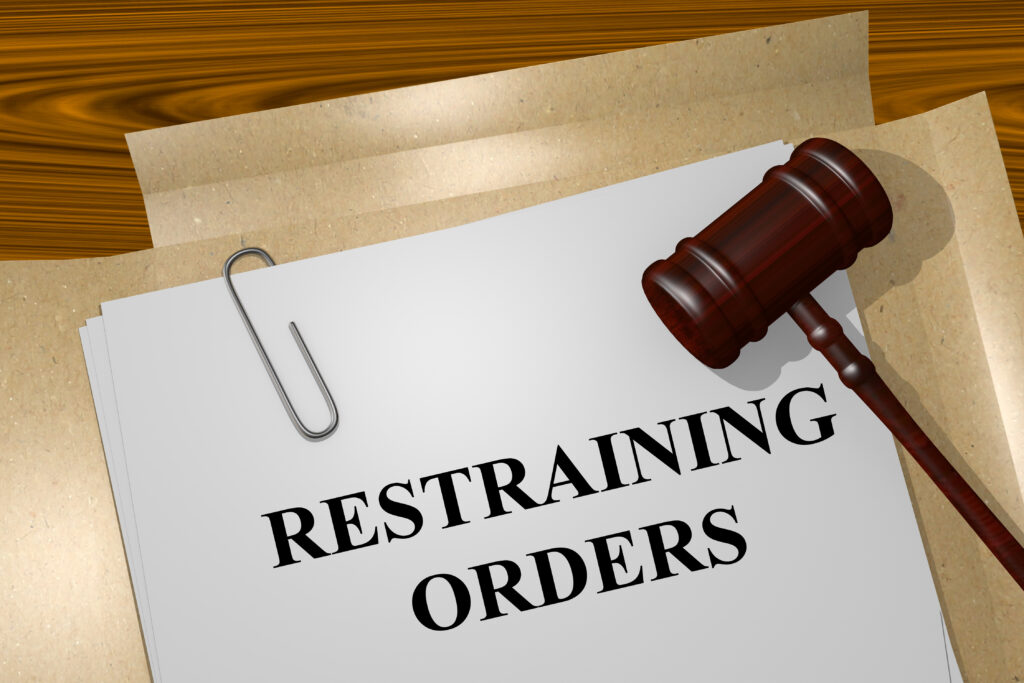
Restraining order violations are serious offenses in Massachusetts that can have significant legal consequences. If you’ve been accused of violating a restraining order, it’s crucial to understand the laws, potential penalties, and defense strategies available. This comprehensive guide will explore the intricacies of restraining order violations in Massachusetts and provide valuable insights for those facing such charges.
What Constitutes a Restraining Order Violation in Massachusetts?
In Massachusetts, a restraining order violation occurs when an individual knowingly disobeys the terms of an abuse prevention order issued by a court under Chapter 209A of the General Laws. To prove a defendant guilty of this offense, the prosecution must establish four key elements beyond a reasonable doubt:
- A court issued an order under Chapter 209A
- The order was in effect at the time of the alleged violation
- The defendant violated a specific term of the order
- The defendant knew the relevant terms of the order were in effect
Types of Restraining Order Violations
Restraining order violations can take various forms, including:
- Abusing the protected person
- Contacting the protected person directly or indirectly
- Failing to maintain a specified distance from the protected person
- Failing to vacate or stay away from the protected person’s residence
- Failing to stay away from the protected person’s workplace or school
It’s important to note that the prosecution doesn’t need to prove the defendant intended to violate the order, only that they intentionally committed an act that constituted a violation.
Legal Consequences of Restraining Order Violations
Violating a restraining order in Massachusetts is a criminal offense that can result in severe penalties. The potential consequences may include:
- Fines
- Probation
- Mandatory counseling or batterer’s intervention programs
- Jail time
- Criminal record
- Loss of firearms rights
- Immigration consequences for non-citizens
The specific penalties imposed will depend on various factors, including the nature of the violation, the defendant’s criminal history, and the judge’s discretion.
Defenses Against Restraining Order Violation Charges
If you’re facing charges for violating a restraining order in Massachusetts, several defense strategies may be available. An experienced criminal defense attorney can help you determine the most appropriate approach based on the specific circumstances of your case. Some potential defenses include:
1. Accidental Contact
If there’s evidence suggesting that the alleged contact or encounter occurred accidentally, the prosecution must prove one of two things beyond a reasonable doubt:
- The contact was not accidental, or
- If it was accidental, the defendant failed to take reasonable steps to end the accidental contact
An accidental encounter occurs when the defendant had no reason to know or believe that the protected person would be present at a particular time or place. If an accidental contact occurs, the defendant is required to take reasonable steps to end the encounter promptly.
2. Incidental Contact
In cases where the alleged conduct may have been incidental to a legitimate, lawful activity (such as contacting a child, going to work, or attending school), the prosecution must prove beyond a reasonable doubt that the violation was not incidental to the permitted activity.
Incidental contact refers to conduct that is connected to a legitimate activity and is a reasonable outgrowth or necessary part of that activity. For example, if a person subject to a restraining order waits in a public courthouse hallway for a hearing, and the protected person happens to be in the same hallway, this would likely be considered incidental contact.
3. Lack of Knowledge
To be found guilty of violating a restraining order, the defendant must have known that the relevant terms of the order were in effect. If the defendant can demonstrate that they were not properly served with the order or did not have knowledge of its terms, this may serve as a valid defense.
4. Third-Party Actions
If the alleged violation resulted from the actions of a third party, the prosecution must prove beyond a reasonable doubt that the defendant had an intent or shared an intent with the third person to commit an act that could result in a violation of the protective order.
5. Challenging the Validity of the Order
In some cases, it may be possible to challenge the validity of the underlying restraining order itself. This could involve arguing that the order was improperly issued or that there were procedural errors in its issuance.

Understanding “Stay Away” and “No Contact” Provisions
Restraining orders often include “stay away” and “no contact” provisions, which can be subject to interpretation. It’s essential to understand how courts in Massachusetts interpret these terms:
Stay Away Provisions
An order to stay away or remain away from a particular location (e.g., residence, workplace, school) is violated by:
- Entering the property on which the location is situated
- Taking actions that directly intrude on the location
- Being in a position sufficiently near to the property that would allow the defendant to abuse or contact the plaintiff if they were on the property or entering/leaving it
It’s important to note that merely being in the vicinity of the location without more is not necessarily a violation.
No Contact Provisions
No contact provisions typically prohibit any form of communication with the protected person, including:
- In-person contact
- Phone calls
- Text messages
- Emails
- Social media interactions
- Sending messages through third parties
Violating a no contact provision can result in criminal charges, even if the protected person initiates or consents to the contact.
The Importance of Legal Representation
If you’re facing charges for violating a restraining order in Massachusetts, it’s crucial to seek experienced legal representation immediately. A skilled criminal defense attorney can:
- Analyze the specifics of your case
- Identify potential defenses
- Gather and present evidence in your favor
- Negotiate with prosecutors for reduced charges or alternative resolutions
- Represent you effectively in court proceedings
Given the serious nature of restraining order violations and their potential impact on your future, working with a knowledgeable attorney is essential to protect your rights and achieve the best possible outcome.
Frequently Asked Questions About Restraining Order Violations in Massachusetts
Can I be charged with violating a restraining order if the protected person contacts me?
Yes, you can still be charged even if the protected person initiates contact. It’s your responsibility to abide by the terms of the order, regardless of the protected person’s actions.
What should I do if I accidentally encounter the protected person?
If you accidentally encounter the protected person, you should immediately leave the area and take reasonable steps to end the contact. Document the incident and inform your attorney if you have one.
Can a restraining order violation affect my child custody or visitation rights?
Yes, violating a restraining order can have significant implications for child custody and visitation arrangements. Courts take these violations seriously when considering the best interests of the child.
How long does a restraining order stay on my record in Massachusetts?
A restraining order itself is not a criminal matter and doesn’t appear on your criminal record. However, if you’re convicted of violating the order, that criminal conviction will remain on your record unless you’re eligible for sealing or expungement.
Can I appeal a conviction for violating a restraining order?
Yes, you may have grounds to appeal a conviction for violating a restraining order. An experienced appellate attorney can review your case and determine if there are valid grounds for appeal.
MA Restraining Order Attorney
Restraining order violations in Massachusetts are serious offenses that can have long-lasting consequences. If you’re facing charges for violating a restraining order, it’s crucial to understand your rights, potential defenses, and the importance of skilled legal representation. By working with an experienced criminal defense attorney, you can navigate the legal process more effectively and work towards the best possible outcome for your case.
Remember, each case is unique, and the information provided here is for general educational purposes only. For specific legal advice tailored to your situation, consult with a qualified Massachusetts criminal defense attorney who specializes in restraining order violations and domestic violence cases.
